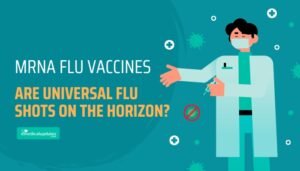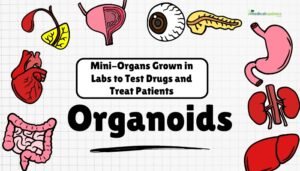Down Syndrome Therapy: Experimental Drug Aims to Improve Cognition in Down Syndrome
Introduction Down syndrome (DS) is a genetic condition caused by the presence of an extra copy of chromosome 21. It affects physical development, cognitive function, and can accompany various health challenges. While supportive care, therapies, and educational interventions have improved...
Read MoreNext-Gen Insulin: Once-Weekly Injection Shows Positive Results
Introduction For many individuals with diabetes, insulin therapy requires daily or multiple injections, entailing careful scheduling and adherence. While these regimens help maintain glycemic control, the burden can be significant. Now, a once-weekly insulin shot is making headlines, suggesting a...
Read MoreAI Discovers Antibiotic: Novel Drug Found Using AI Kills Superbugs
Introduction Antibiotic resistance poses a growing global crisis, with certain strains of bacteria evading nearly every existing drug. Researchers warn of a post-antibiotic era unless new treatments emerge. Recently, artificial intelligence (AI) has helped discover a novel antibiotic compound that...
Read MoreBreakthrough in Endometriosis Treatment: New Drug Shrinks Lesions in Trials
Introduction Endometriosis—in which tissue resembling the uterine lining grows outside the uterus—affects millions of women worldwide, causing pelvic pain, heavy periods, and fertility issues. Traditional treatments, such as hormonal therapies and surgery, often yield incomplete relief and carry side effects...
Read MoreUniversal Coronavirus Vaccine: Working Toward a Shot for All Variants
Introduction The COVID-19 pandemic showcased how coronaviruses can rapidly mutate, leading to new variants that sometimes evade existing vaccines. While current SARS-CoV-2 shots remain effective at preventing severe disease, they often require updates or boosters when variants like Delta or...
Read MoreNew Antibiotic for Gonorrhea: Fighting a Drug-Resistant STD
Introduction Gonorrhea, caused by the bacterium Neisseria gonorrhoeae, is one of the most common sexually transmitted infections (STIs) worldwide. Historically, it was treatable with a simple course of antibiotics. However, N. gonorrhoeae has evolved resistance to many first-line drugs—penicillins, tetracyclines,...
Read MoremRNA Flu Vaccines: Are Universal Flu Shots on the Horizon?
Introduction Seasonal influenza causes annual global outbreaks, leading to countless illnesses, hospitalizations, and deaths. Traditional flu vaccines, formulated each year to match predicted circulating strains, often struggle with suboptimal effectiveness due to constantly mutating viruses. Now, scientists are applying messenger...
Read MoreOrganoids: Mini-Organs Grown in Labs to Test Drugs and Treat Patients
Introduction Across the globe, scientists are developing “mini-organs” known as organoids—three-dimensional clusters of cells that replicate key structural and functional aspects of real human organs. By mimicking organs like the brain, liver, kidneys, and intestines on a small scale, organoids...
Read MoreRett Syndrome Treatment: First-Ever Drug Approved for This Rare Disorder
Introduction Rett syndrome is a rare neurodevelopmental disorder that primarily affects females, causing progressive loss of motor skills and speech abilities after a period of normal development. Families often notice that their child begins to lose previously acquired milestones—like purposeful...
Read MoreNew Antibiotic Class Discovered: Hope for Beating Superbug Infections
Introduction Drug-resistant bacteria, often called “superbugs,” have become a critical public health threat. Each year, more pathogens evolve resistance to existing antibiotics, forcing physicians to rely on dwindling options to treat serious infections. With few novel antimicrobials reaching the market,...
Read More









